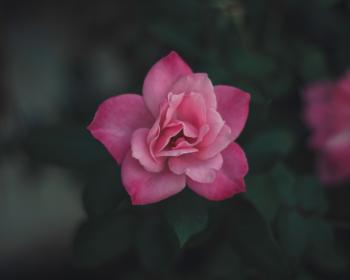Hello Moltmanniac friends. Today’s selection comes from The Source of Life: The Holy Spirit and the Theology of Life in his chapter called “A Meditation on Hope.” I’ve been recalibrating my understanding of hope in the last few years, and if there is any declaration of hope I find most helpful, it is likely this one:
In the struggle for peace against nuclear armaments, and in the struggle for justice against the dictatorships of violence and apartheid, many people have been able to say: we do what we have to do whether we succeed or not. We are acting in accordance with God’s future, the future we hope for, even if that brings us in conflict with our own society. We are acting out of an inner necessity, in the way that roses flower. The roses don’t ask why either, or what for – they simply bloom. The same is true of life lived out of true hope.
But the ultimate reason for our hope is not to be found at all in what we want, wish for and wait for; the ultimate reason is that we are wanted and wished for and waited for… Whenever we base our hope on trust in the divine mystery, we feel deep down in our hearts: there is someone who is waiting for you, who is hoping for you, who believes in you. We are waited for as the prodigal son in the parable is waited for by his father. We are accepted and received, as a mother takes her children into her arms and comforts them. God is our last hope because we are God’s first love. We are God’s dream for his world and his image on the earth he loves. God is waiting for his human beings to become truly human. That is why in us, too, there is a longing to be true human beings. God is waiting for human human beings; that is why he suffers from all the inhumanities which we commit personally and politically. God is waiting for his image, his echo, his response in us. That is why he is still patient with us and endures the expanse of ruins in our history of violence and suffering. God isn’t silent. God isn’t dead. God is waiting. To be able to wait is the strongest strength. God is patient with us and puts up with us. God gives us time and gives us future.
God is waiting for the homecoming of those he has created.
Hope is not blind. It is not blind optimism. It is not blind to the pains of the world. It is not blind to our own very real failings. Hope is a defiant commitment to our call to become truly human beings. When we live in true hope, the kind that bears the fruit of both action and wisdom, we are, as Moltmann said, simply acting out of an inner necessity. Just as a rose blooms, we move toward a future that is based on God’s Beloved Community. That is our compass. That is our True North. God is our home.
And we can find our hope there, not in our actions or in our goals, and definitely not in the outcomes, but in the One who is waiting for us there. The One who does not give up on us, the One who patiently bears even the burdens of our inhumanities in the pursuit of our human transformation. That transformation comes, often, through trials and difficulties. We practice resilience. Our commitment to our call is tested. When all that is left is our conviction, when all we thought was going to come to pass has fallen by the wayside in spectacular disarray, we may find that trusting in the divine mystery is not only enough. It is everything. It is the source of all things.
Moltmann says God is our last hope. I think he would also say it is true that God is our first hope. We are bookended by the One who waits for us, always. When we find our home there, we, too, can become people who say: we do what we have to do whether we succeed or not. We choose to live as the beloved community of God, even if it brings us into conflict with all that is around us. The outcome is not our home. The success is not our home. God is our home, and always will be, and we will live unto God even when all may fall around us.

Add Your Voice!